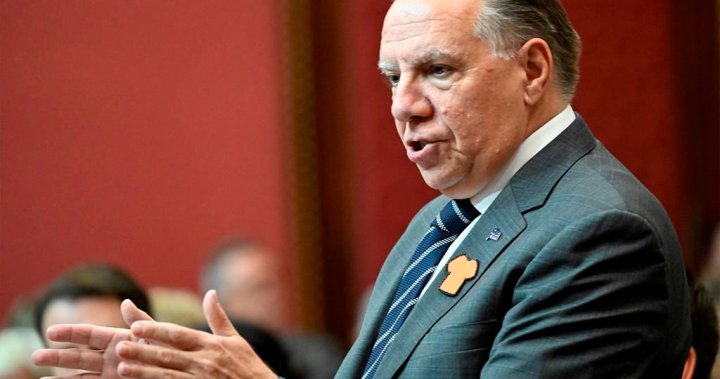A notable polling analyst has raised concerns about the future of Quebec’s governing party, suggesting that the Coalition Avenir Québec (CAQ) could possibly secure fewer than ten seats in the provincial legislature based on recent polling data. Philippe J. Fournier, the creator of the poll aggregator 338Canada, indicates that the approval rating of Premier François Legault is now lower than that of Prime Minister Justin Trudeau, hovering around 30 percent according to current polls. This decline signals potential trouble for Legault and his administration as they confront mounting dissatisfaction among Quebec voters.
Recent polling data gathered through a survey for 338Canada and L’Actualité magazine reveals a concerning trend. The majority of Quebecers now believe that Legault should resign before the upcoming provincial election set for 2026. Alarmingly, only 20 percent of respondents expressed satisfaction with his performance as premier, reflecting a significant loss of confidence among the electorate. Fournier expressed surprise at the low numbers, stating it will be particularly challenging for the CAQ to mount a recovery given the apparent discontent among voters.
Legault’s government, which achieved a remarkable victory in the 2022 election by securing 90 out of 125 seats—the largest majority in decades—now finds itself struggling to maintain that same level of electoral support. Over the past year, the CAQ has consistently fallen behind the opposition Parti Québécois (PQ) in public opinion polls, suggesting a shift in the political landscape in Quebec. This decline from a dominant position indicates potential vulnerabilities for Legault and his party as they prepare for future political challenges.
In light of these developments, the Pallas Data poll conducted last week surveyed 1,093 adults, providing insights into the current political climate. With a margin of error of three percentage points, and a confidence level of 19 times out of 20, the data presents a credible reflection of voter sentiment. This polling information serves as crucial intelligence for both supporters and opponents of the CAQ, indicating where voter concerns lie and the political risks for the ruling party.
The implications of these polling outcomes are significant not only for the CAQ but also for the broader political scene in Quebec. As public dissatisfaction grows, it becomes essential for political leaders to reevaluate their strategies and engage meaningfully with constituents. The shift in public sentiment may motivate the CAQ to address the issues raised by voters or risk further erosion of their support leading up to the next election.
In summary, the current landscape of Quebec politics suggests a critical juncture for the CAQ and Premier François Legault. As his approval ratings plummet and discontent grows among voters, the party must navigate a challenging path forward to regain trust and support. With predictions of seat losses looming, the upcoming years will be pivotal for the CAQ, as they work to redefine their political messaging and reconnect with the electorate before the next provincial election.

